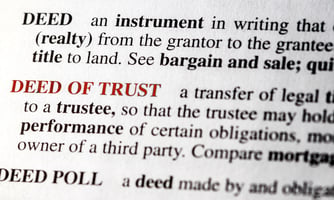Keep detailed records of all estate-related transactions, communications, and decisions
CM Law's Ultimate List: The top 50 FAQs on Administration of Estates #25: Document Everything
Keeping detailed records is a fundamental aspect of administering an estate in New South Wales, Australia. Executors are required to maintain comprehensive documentation of all estate-related transactions, communications, and decisions to ensure transparency and accountability. Proper record-keeping helps prevent disputes, protects the executor from liability, and ensures the efficient administration of the estate. This section provides guidance on the importance of documentation, the types of records to maintain, and the legal framework governing record-keeping in NSW.
Importance of Record-Keeping in Estate Administration
Effective record-keeping is crucial for several reasons:
- Transparency: Clear records demonstrate that the executor has managed the estate in good faith, providing transparency to all interested parties.
- Accountability: Detailed documentation helps protect the executor from potential claims of mismanagement or misconduct.
- Legal Compliance: Executors must comply with statutory requirements to maintain certain records for specific periods.
- Efficient Administration: Keeping organized records facilitates the smooth administration of the estate, making it easier to address any issues that arise.
Types of Records to Maintain
Executors should maintain the following types of records:
- Financial Transactions: Bank statements, receipts, invoices, and records of all financial transactions related to the estate.
- Correspondence: Copies of all communications with beneficiaries, creditors, and legal professionals.
- Legal Documents: Copies of the will, grant of probate, letters of administration, court orders, and other legal documents.
- Asset Inventories: Detailed lists of the estate’s assets, including valuations, appraisals, and sale records.
- Distributions: Records of distributions made to beneficiaries, including the date, amount, and method of distribution.
- Tax Returns: Copies of tax returns filed on behalf of the deceased and the estate, along with supporting documents.
The Role of the Executor in Maintaining Records
The executor's role in maintaining records includes:
- Organizing and Safeguarding Documents: Executors should keep all estate-related documents organized and securely stored.
- Updating Records Regularly: Maintaining up-to-date records to reflect the current status of the estate's administration.
- Providing Access to Records: Making records available to beneficiaries, legal professionals, and courts as required.
- Retaining Records for the Required Period: Complying with statutory requirements regarding the retention period for various types of records.
Legal Framework Governing Record-Keeping in NSW
Under the Succession Act 2006 (NSW) and other relevant laws, executors are required to maintain detailed records of the estate administration process. Executors must act in good faith, with care and diligence, to avoid potential liability for inadequate record-keeping. Proper documentation is also necessary to comply with the Australian Taxation Office (ATO) requirements and other legal obligations.
Case Study: Consequences of Inadequate Record-Keeping in an NSW Estate
Case Overview
In the case of Re Estate of McMillan [2021] NSWSC 512, the executor faced significant challenges due to inadequate record-keeping, leading to disputes among beneficiaries and prolonged legal proceedings. The estate included a residential property valued at $2 million, an investment portfolio worth $1.2 million, and various personal assets totaling $400,000. The executor's failure to maintain detailed records resulted in confusion and suspicion among the beneficiaries.
Behavior of the Participants
The executor, a distant relative of the deceased, initially attempted to manage the estate's affairs without professional assistance. They failed to keep accurate records of transactions, communications, and asset distributions. The beneficiaries, concerned about the lack of transparency, grew increasingly suspicious of the executor's actions.
As the months passed, the beneficiaries' anxiety turned to frustration. They repeatedly requested documentation and updates, but the executor provided incomplete and inconsistent information. The beneficiaries, feeling desperate and fearing mismanagement, sought legal advice and initiated court proceedings to remove the executor and gain access to the estate records.
Legal Process and Court Involvement
The beneficiaries filed a formal application with the NSW Supreme Court to remove the executor due to inadequate record-keeping and alleged mismanagement. The court reviewed evidence, including the executor’s incomplete records and the beneficiaries' claims of lack of transparency.
The court found that the executor had breached their fiduciary duty by failing to maintain adequate records and provide transparency to the beneficiaries. The court appointed an independent administrator to oversee the estate's administration, ensuring proper documentation and compliance with legal requirements. The independent administrator was able to reconstruct some of the missing records, but the estate still incurred significant delays and additional costs.
Financial Consequences
The estate faced considerable financial consequences due to the inadequate record-keeping by the executor. The prolonged legal proceedings and the appointment of an independent administrator resulted in legal fees totaling $130,000. The lack of proper documentation led to delays in asset distribution, resulting in a loss of $150,000 in the value of the investment portfolio due to market fluctuations. Additionally, costs for professional services to reconstruct records added another $40,000 to the estate's expenses. These losses significantly reduced the estate's value, impacting the beneficiaries' expected inheritance.
Lessons Learned
- Maintain Detailed Records: Executors must keep accurate and comprehensive records of all estate-related transactions and communications.
- Ensure Transparency: Providing regular updates and documentation to beneficiaries helps prevent disputes and build trust.
- Seek Professional Assistance: Executors should consider engaging legal or financial professionals to assist with record-keeping if needed.
Statistics on Estate Administration and Record-Keeping in NSW
- Executor Mismanagement: Approximately 12% of estate disputes in NSW involve allegations of inadequate record-keeping.
- Legal Costs: The average legal cost for disputes involving record-keeping issues in NSW ranges from $60,000 to $200,000.
- Executor Removal: About 7% of probate cases in NSW result in the removal of an executor due to poor record-keeping practices.
- Record-Keeping Complaints: The NSW Legal Services Commissioner receives around 110 complaints annually related to inadequate record-keeping in estates.
- Dispute Duration: Disputes over record-keeping typically extend court proceedings by 8 to 16 months in NSW.
- Impact on Estate Value: Estates affected by inadequate record-keeping may see a reduction of 10-15% in their overall value.
- Mediation Success: Mediation resolves about 60% of disputes in NSW related to record-keeping without a full court hearing.
- Beneficiary Concerns: Around 18% of beneficiaries report concerns about record-keeping during estate administration.
- Professional Assistance: Approximately 9% of estates in NSW involve professional assistance to rectify inadequate record-keeping.
- Executor Liability: Executors in 11% of probate cases face potential liability due to failure to maintain adequate records.
Resources
Government Resources
- NSW Government – Wills, Probate, and Inheritance
URL: https://www.nsw.gov.au/law-and-justice/wills-probate-and-inheritance - NSW Supreme Court – Probate
URL: https://www.supremecourt.justice.nsw.gov.au/Pages/sco2_probate/probate.aspx - Australian Taxation Office – Deceased Estates
URL: https://www.ato.gov.au/Individuals/Deceased-estates - NSW Trustee and Guardian – Record-Keeping for Executors
URL: https://www.tag.nsw.gov.au/record-keeping-executors - NSW Law Reform Commission – Estate Administration
URL: https://www.lawreform.justice.nsw.gov.au
Non-Profit Organizations
- Justice Connect – Record-Keeping Guidance for Executors
URL: https://justiceconnect.org.au/resources/record-keeping-guidance - The Law Society of New South Wales – Executor Responsibilities
URL: https://www.lawsociety.com.au/legal-help/probate-estate-administration/executor-responsibilities - NSW Community Legal Centres – Executor Guidance
URL: https://www.clcnsw.org.au/executor-guidance - Seniors Rights Service – Estate Management Advice
URL: https://seniorsrightsservice.org.au/estate-management-advice - Financial Rights Legal Centre – Record-Keeping for Estates
URL: https://financialrights.org.au/record-keeping-estates



